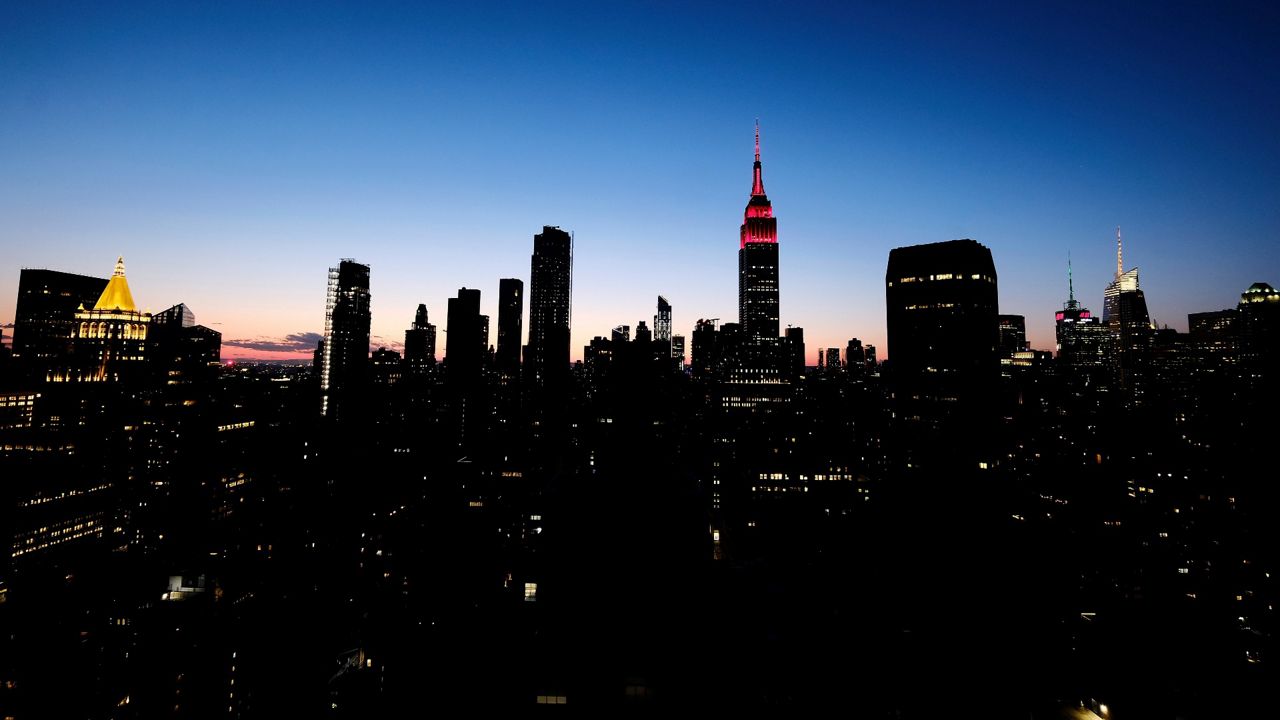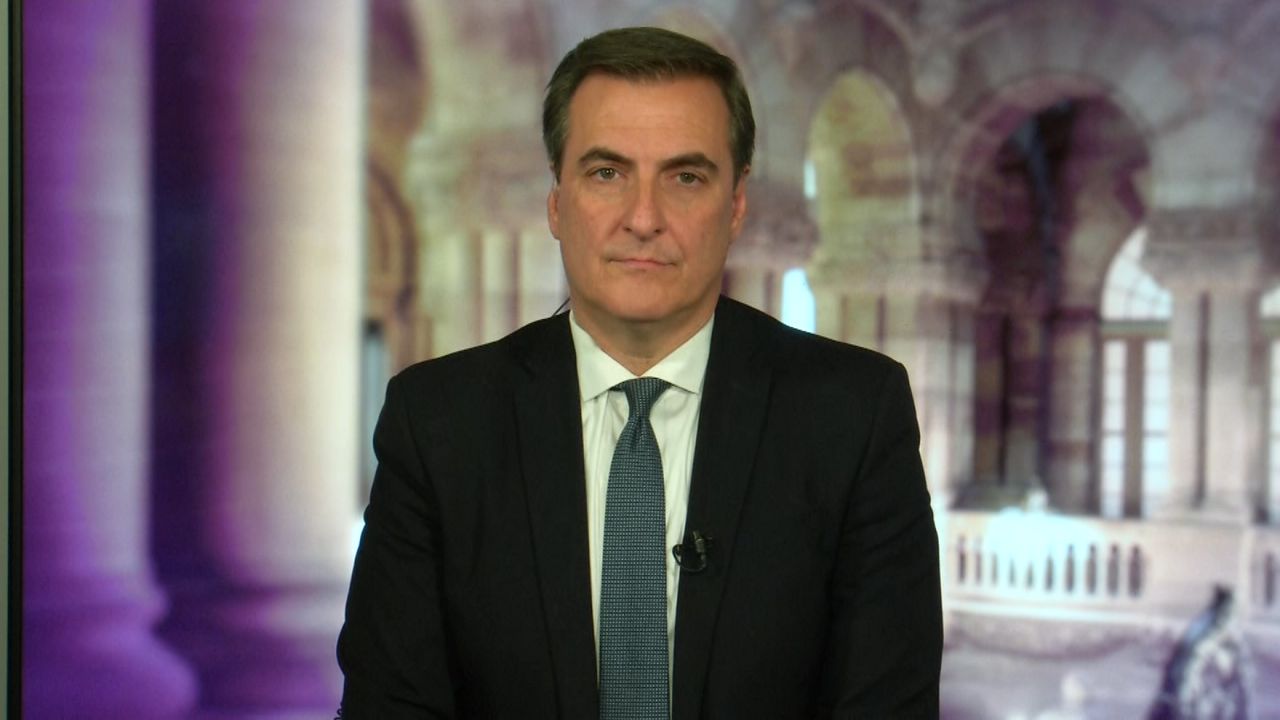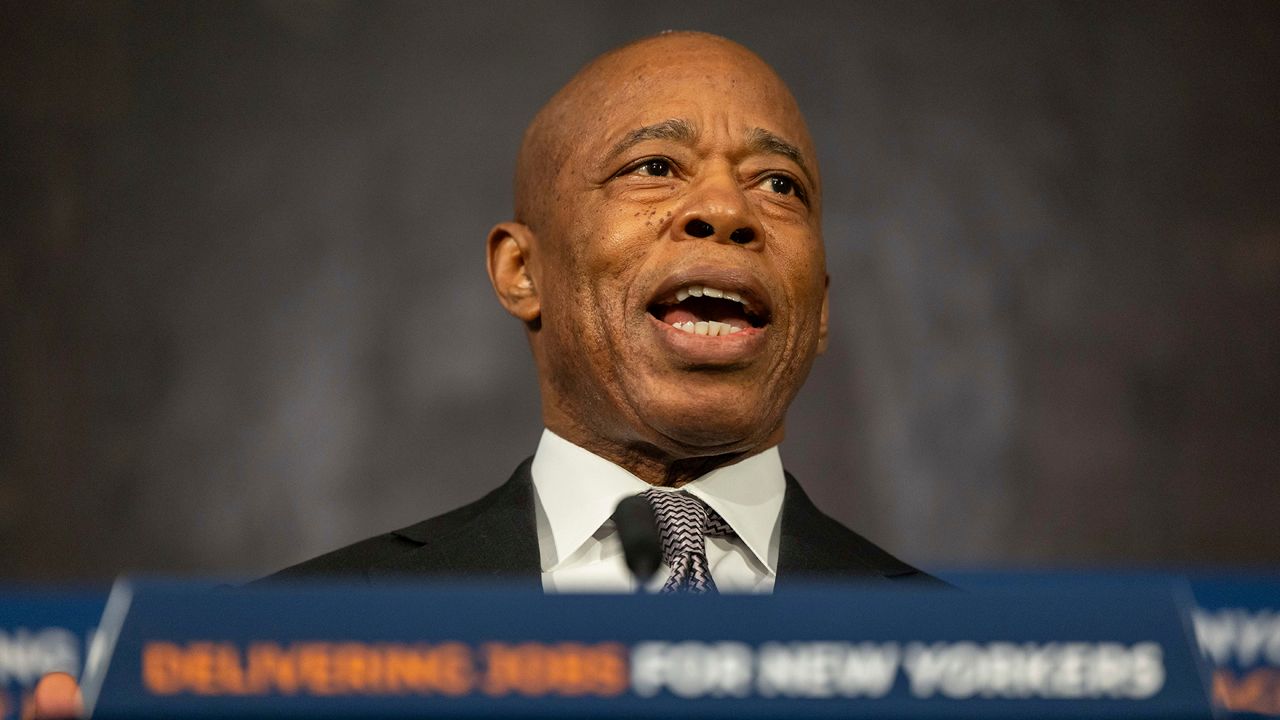John Fitzpatrick has weathered multiple crises in his more than three-decade career in the hotel industry. He opened his first hotel in New York City during the Gulf War and owned three by the time 9/11 happened.
But COVID-19’s impact on his life’s work has been unlike anything else.
“The difference between 9/11 and this is that after 9/11, the rest of the world circled around New York,” he said. “But now, no matter where you look, they're dealing with the same problem.”
Fitzpatrick followed in the footsteps of his late father, who opened his first hotel in Ireland. His sister currently runs that hotel and he runs two hotels in Midtown —the Fitzpatrick Manhattan and Fitzpatrick Grand Central. But right now, only the Fitzpatrick Manhattan is welcoming guests. And while he hopes that both hotels will be able to survive this year, he can’t be certain.
He’s far from alone in that uncertainty.
When COVID-19 hit the city in March, the hotel industry, and tourism overall, took a massive hit. The shutdown happened right before spring, a season that usually attracts a large number of tourists to the city. In 2019, more than 66 million trips generated about $47.4 billion in direct spending in the city. Officials expected those numbers to rise in 2020 with an estimated 67 million visitors by the end of the year, according to NYC & Company, the city’s tourism agency. But with the pandemic, the actual numbers were expected to drop by about 66%, to 22.9 million visitors.
While tourist spending is a major part of the city’s revenue stream, business and commercial travel spending also constitute a large share. In fact, business travel typically drives overnight hotel visitation more than leisure in the first and fourth quarters of the year, according to NYC & Company, the city’s official marketing organization. But with offices still closed and companies allowing their workers to continue working from home well into 2021, hotels continue to see dramatically low occupancy rates.
“New York will return when people go back to work in their offices, and as a result that generates business travel for people coming to visit,” said Dan Peek, president of Hodges Ward Elliott, an independent brokerage for the hospitality market.
And even if tourism starts to pick back up this year, without commercial travel, hotels will still suffer.
“Corporate groups generally provide a base of occupancy for the market and without that, hotels are really not going to have tremendous pricing power so it's going to be a challenge for several years on the profitability side,” said Weiss.
Hotel occupancy in New York City is under 40%, according to lodging data firm STR. But people in the industry, like Vijay Dandapani, president of the Hotel Association of New York, say the number is closer to 10% when you discount rooms being used for government purposes, like housing first responders and people who are homeless.
“It’s barely scratching the surface of what our industry could have been or should have been, rather,” said Dandapani. “Whereas if we did not have COVID, we would’ve been in the high 80s—85 to 90% occupancy.”
In 2019, there were about 123,000 hotel rooms in New York City and roughly 19,000 rooms slated for development. About 200 of the city’s 700 hotels have closed their doors since the start of the pandemic, according to the Hotel Association of New York, which means the city could lose about 30% of its hotels if those establishments stay closed permanently.
This upheaval comes as the city was in the midst of an unprecedented hotel boom that began in 2007 and has added over 54,100 hotel rooms since then—a 73% increase in supply, with almost half of the new properties added in the outer boroughs since 2015.
It’s something that Mayor de Blasio has tried to curb over the years, with pushes to create special permits to review and approve new hotel developments. The Hotel Trades Council has been a powerful entity in driving this effort forward, getting piecemeal restrictions through the City Council in both the Bloomberg and de Blasio administrations.
In 2018, the city implemented this special permitting policy in several neighborhoods and in manufacturing areas. In those areas, new hotel construction has been brought to a standstill.
The mayor has voiced his support for a city-wide version of this requirement. And despite the cratering of the hotel industry this year, the city is still moving forward with its study of the plan in anticipation of hotel bookings returning to pre-pandemic levels by 2025.
Still, the question remains—what will happen to the already-existing hotels that have shuttered and might stay closed for good?
There’s now a push by some politicians, including Gov. Andrew Cuomo, to convert them into affordable housing.
“Right now, it's too early to see what's going to happen because nobody knows what the office market is going to actually look like,” said Dandapani. “Some are talking about affordable housing, but that's got its own issues.”
Whether or not a hotel is sold and is viable for alternate use depends on so many factors, like the building structure, whether it’s landmarked, the building’s age, if there’s additional air rights above the building and even the type of floor plates in the building.
“Some people say, ‘Oh, we can convert it to multi-family units. It could be a partial retail expansion. It could be a partial assisted living facility or creative office, flex office—all these different things.’ And that's all true,” said Evan Weiss, chief operating officer at LW Hospitality Advisors. “Those are all viable opportunities, depending upon the specific asset, its specific layout and the specific location.”
For the most part though, hotel owners are sitting tight until the landscape with coronavirus becomes a bit clearer, even if that means staying shut the whole time, which comes with its own source of issues.
Not only do owners have to take into consideration any debt payments they have or real estate taxes that they have to pay, like the $1.6 million Fitzpatrick paid in 2020 for his two hotels, but there’s still a sizable baseline of operating costs to keep the place running.
For instance, there’s the salary and benefits for staff, as well as overall maintenance of the facilities itself. Even if a hotel owner decides it’s more economical to remain closed, they’re still paying to hold on to the property.
“They've just got a handful of employees to ensure that boiler rooms are going, there’s no water leaks or any other danger either to the hotel itself or to anybody who goes near the hotel,” said Dandapani.
With all of these considerations, the decision to reopen the hotel, hold on to the property or eventually sell, all comes down to how deep-pocketed the owner is or whether they have significant capital backing.
And depending on how many hotels do end up closing permanently, like The Roosevelt Hotel, Hilton Times Square, and the Omni Berkshire Place, the impact on the city could be huge.
In 2019, the city received 3.1 billion dollars in taxes from the hotel industry, according to the Hotel Association. With the city’s overall budget of about 94 billion dollars, that means almost 2% came from the hotel industry alone.
And with the city in desperate need of a cash influx, that means everything from teachers, to law enforcement, to social services could be impacted.
The hotel industry also employed about 55,000 people before the pandemic. That number’s now closer to 10,000, according to the Hotel Association.
“Their salaries had a knock-on effect,” said Dandapani. “They went to the grocery store, they went to the hairdresser, they went to whatever. All these things have a cumulative effect. We're a tapestry of things that is really hard to replace as part of the city.”
That’s why a big part of a hotel owner’s decision on what to do with their business often involves more than just financial calculations.
“There's also emotions involved,” said Weiss. “Folks want to own a particular hotel, whether it's a landmark or it's been in the family for a long time and they're just willing to continue to float the hotel from a financial perspective until it's viable on its own.”
That’s definitely the case for Fitzpatrick, who hopes that by June of this year he will be back to steady business.
“I've been an owner, operator for 35 to 40 years,” he said. “All I know is hotels. And I think the ones that do survive, we'll be able to do a little bit better. New York is New York. And when we get through this, and we get a vaccine, and the theaters are open again, and the museums are open again and all the stuff that we've nearly forgotten about is open again, New York will thrive.”








_Dnt_MTA_Fare_Gates_Clean)